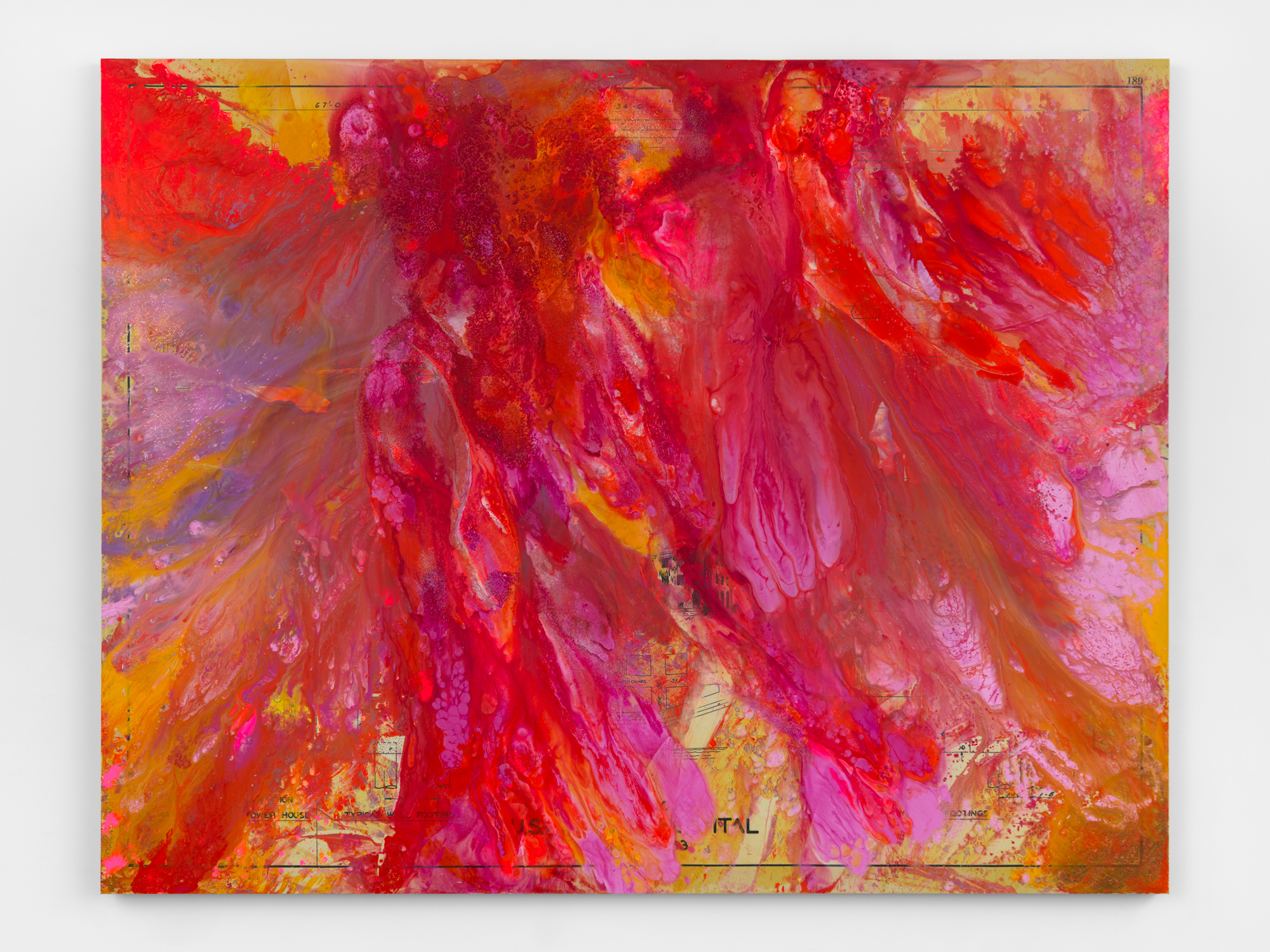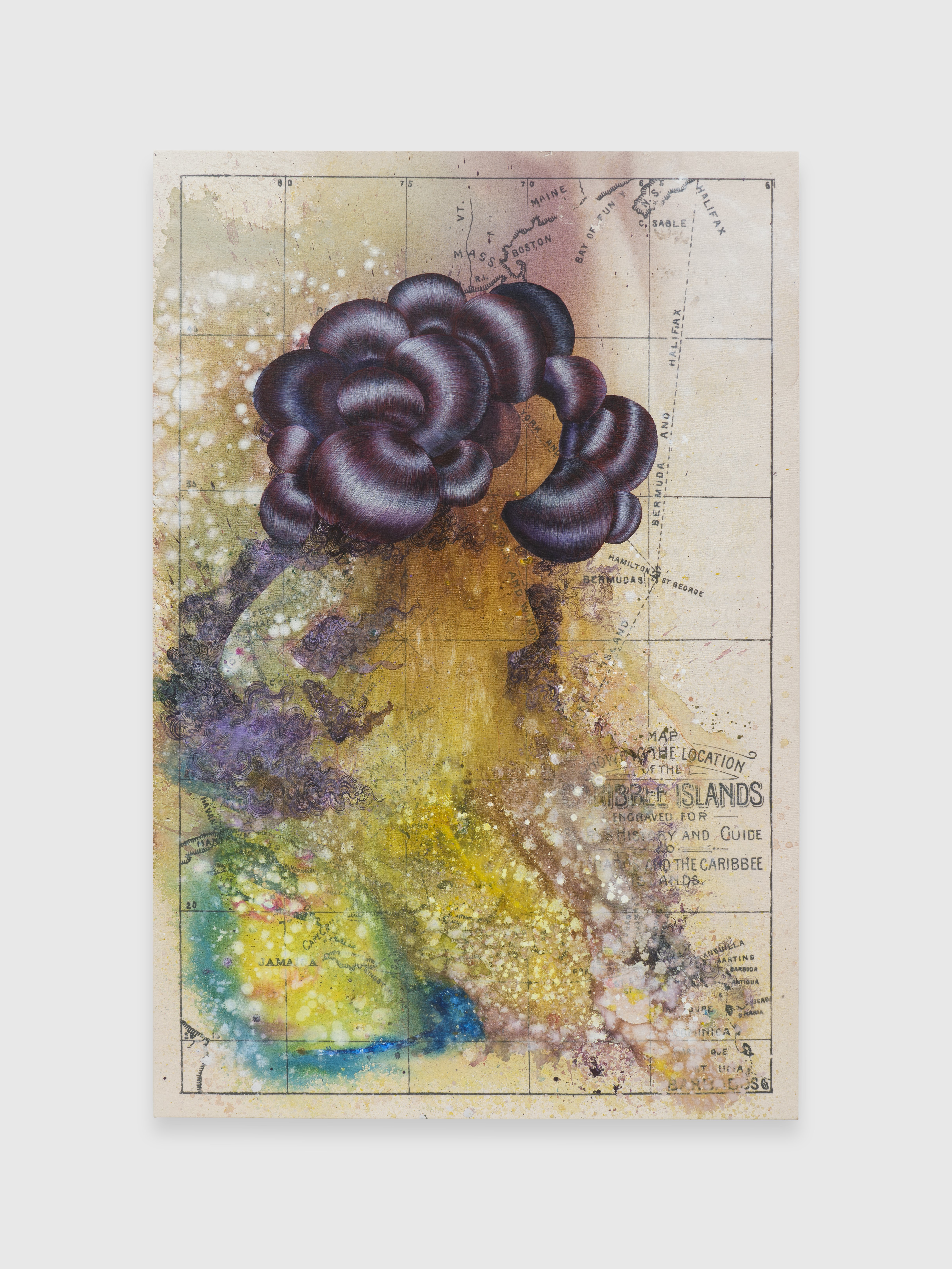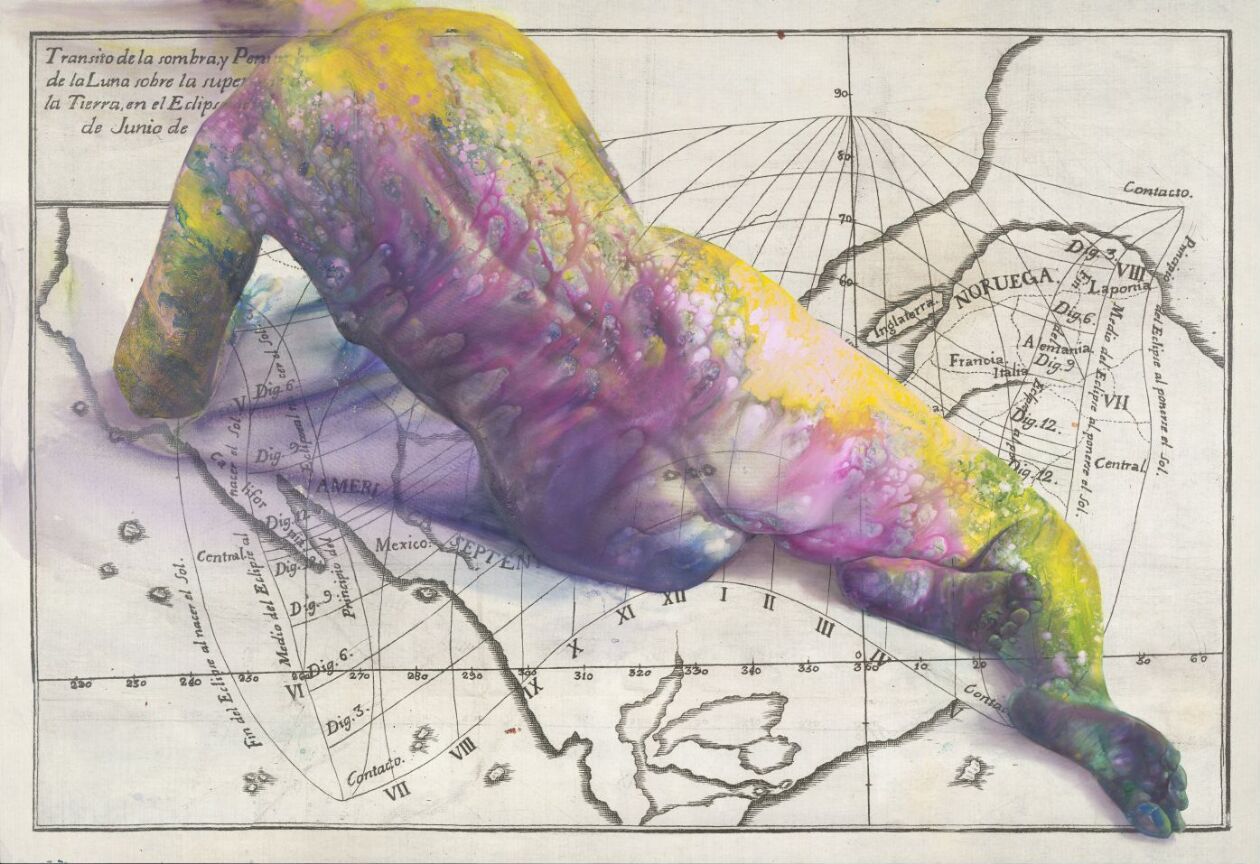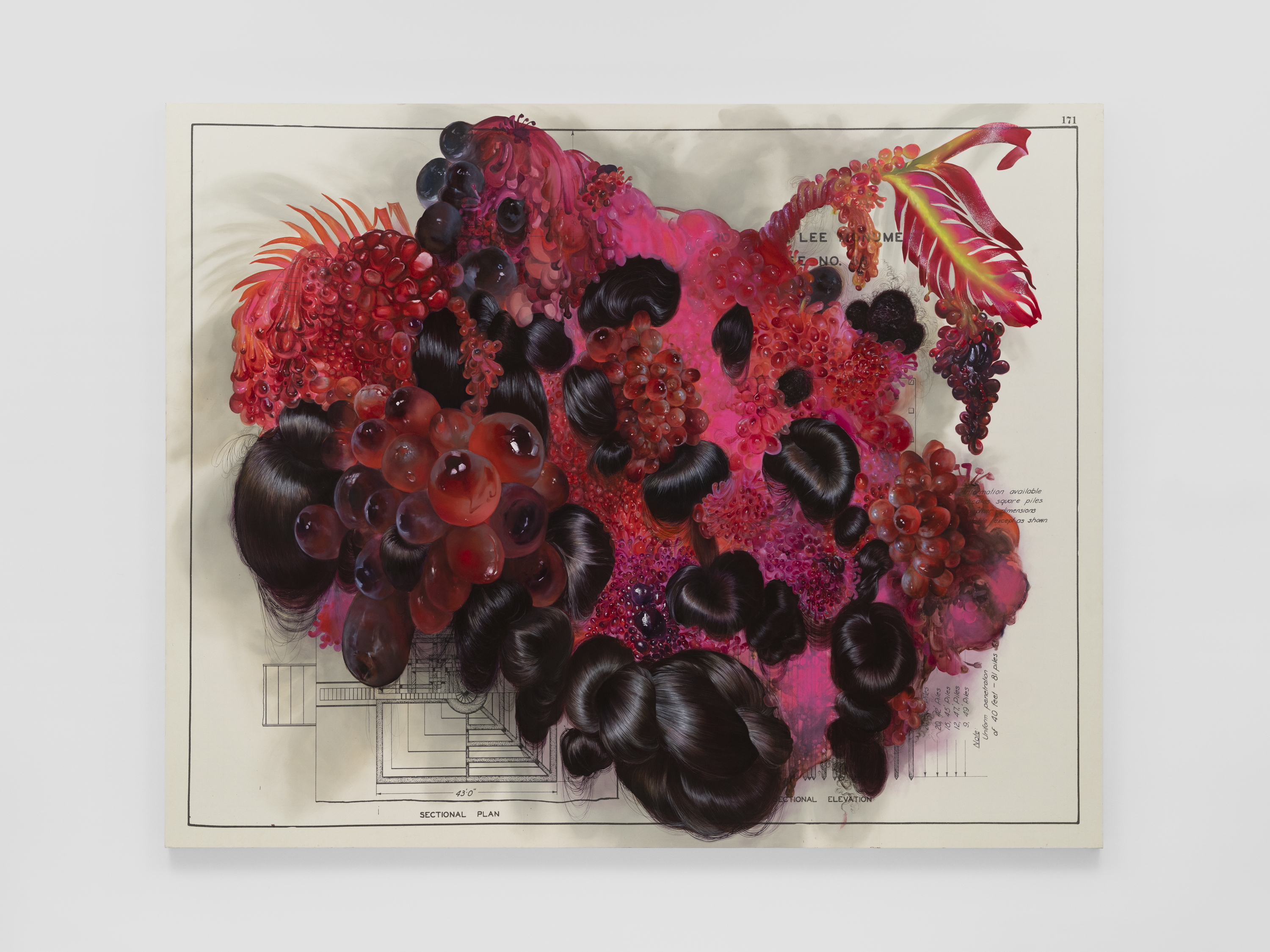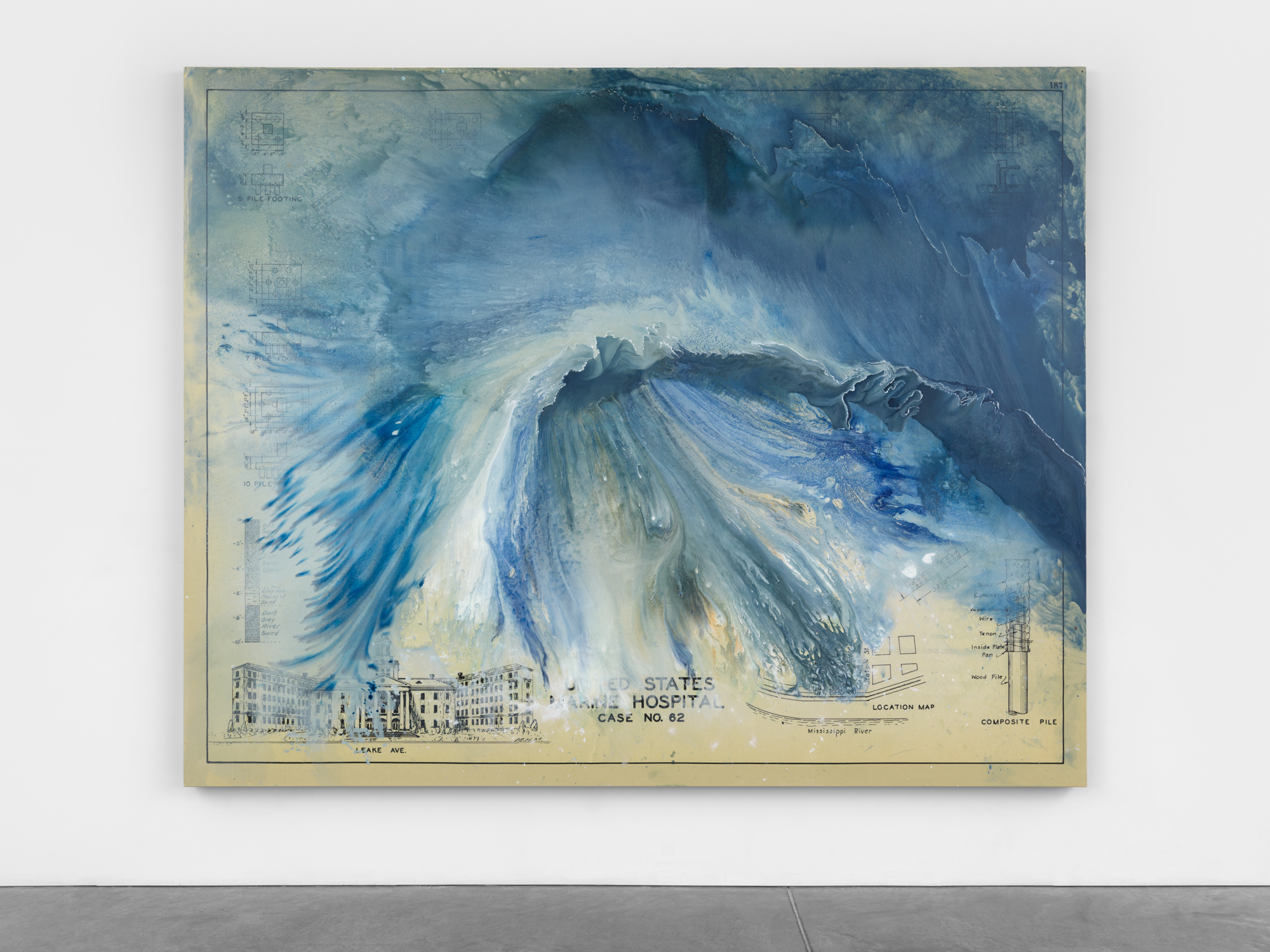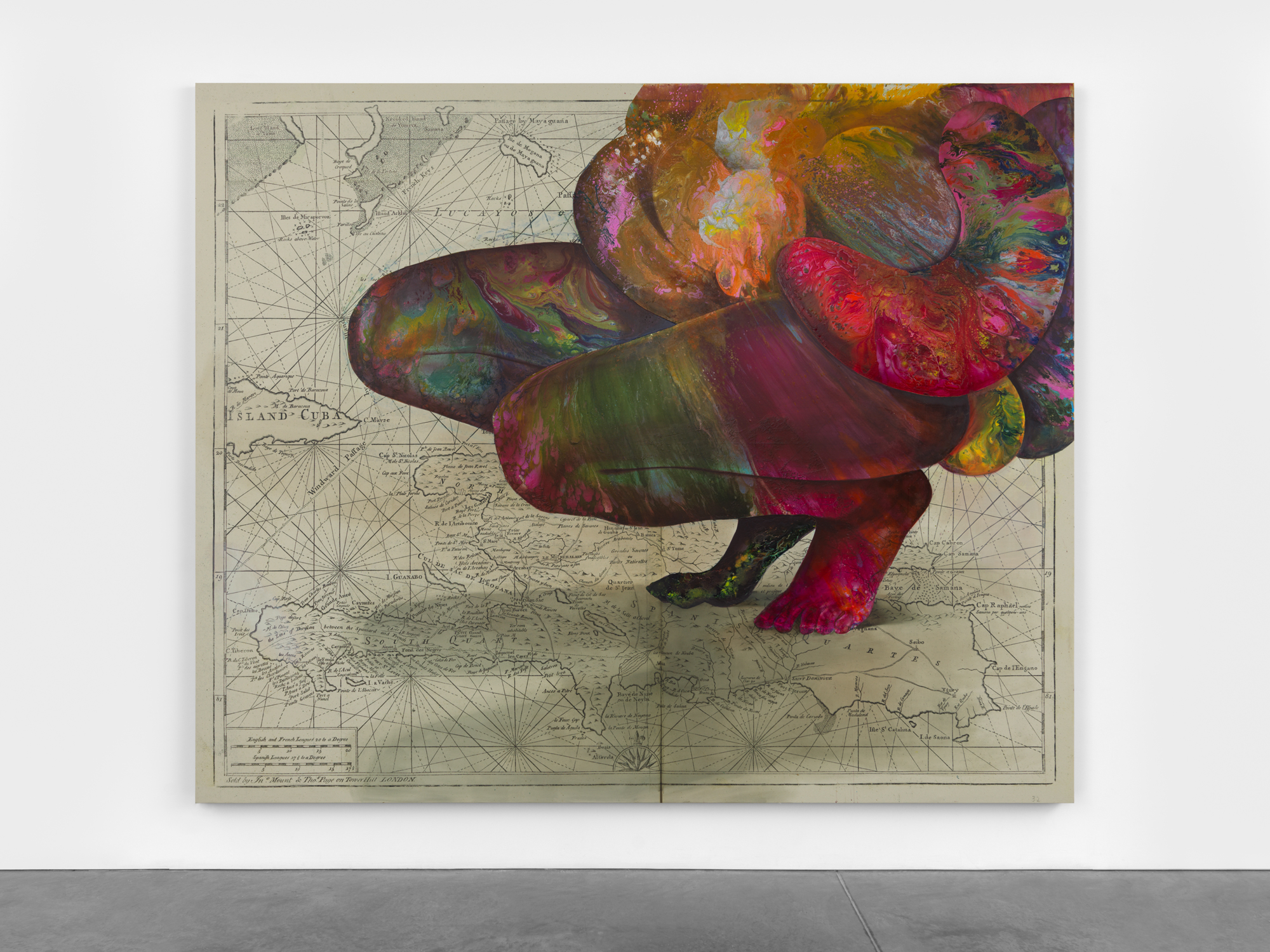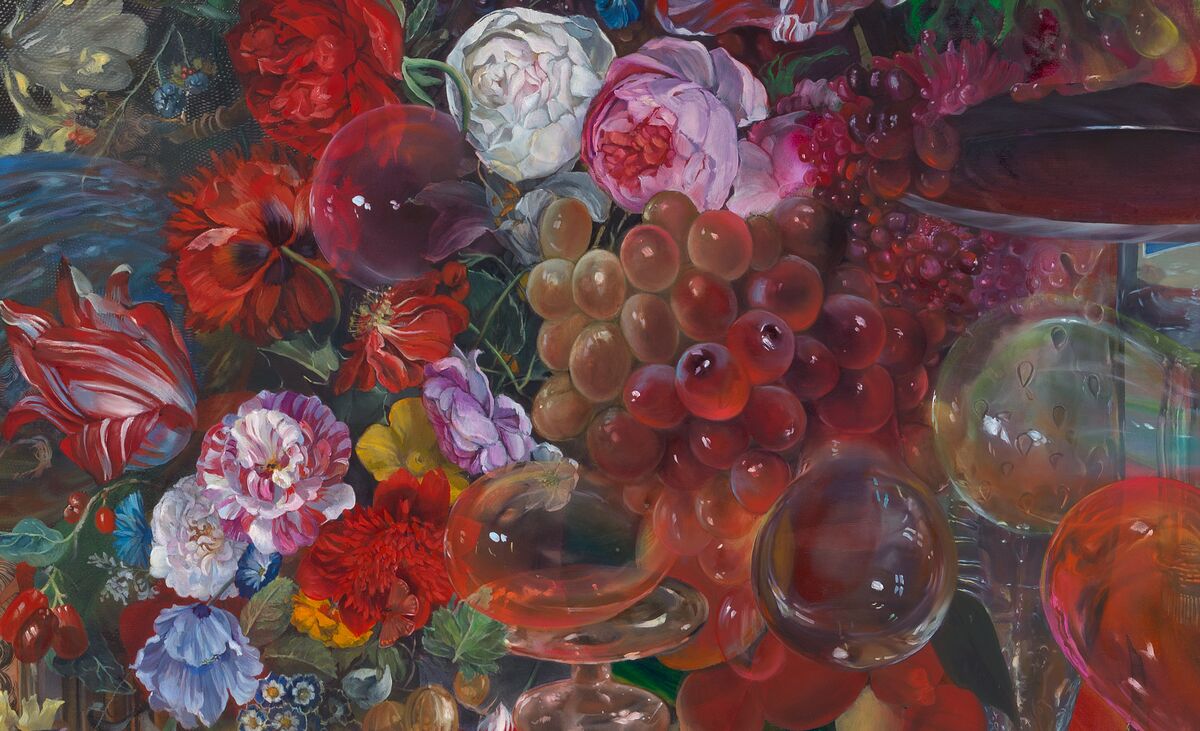Firelei Báez

New York-based artist Firelei Báez casts diasporic histories into an imaginative realm, re-working visual references drawn from the past to explore new possibilities for the future. In exuberantly colorful works on paper and canvas, large-scale sculptures, and immersive installations, Báez combines representational cues that span from hair textures to textile patterns, plant life, folkloric and literary references, and wide-ranging emblems of healing and resistance. Often featuring strong female protagonists, Baez’s portraits incorporate the visual languages of regionally-specific mythology and ritual alongside those of science fiction and fantasy, to envision identities as unfixed, and inherited stories as perpetually-evolving. These empowered figures’ eyes most often engage directly with the viewer, asserting individuality and agency within their states of flux.
Born in Santiago de los Caballeros to a Dominican mother and a father of Haitian descent, Firelei Báez’s concerns with the politics of place and heritage can be traced back to her own upbringing on the border between Hispaniola’s two neighboring countries, whose longstanding history of tension is predicated in large part by ethnic difference. Báez’s work ties together subject matter mined from a wide breadth of diasporic narratives. In addition to self-portraiture, past series have examined ciguapas, elusive and cunning female creatures from Dominican folklore; tignons, head-coverings women of color were legally required to wear in 18th Century New Orleans LA; and the iconography of the Black Panther Movement. Báez often paints directly onto historical material, such as found maps, manuals, and travelogues, layering figures over them. By rendering spectacular bodies that exist on opposite sides of intersecting boundaries—between human and landscape, for example, or those reinforcing racial and class stratification—Báez carries portraiture into an in-between space, where subjectivity is rooted in cultural and colonial narratives as much as it can likewise become untethered by them.
Firelei Báez (b. 1981, Dominican Republic) received an M.F.A. from Hunter College, a B.F.A. from the Cooper Union’s School of Art, and studied at the Skowhegan School of Painting and Sculpture. In 2024, Báez will be the subject of her first major US survey at the ICA Boston, curated by Eva Respini. Her work has been presented in many significant international exhibitions, including the inaugural installation of the ICA Watershed, Boston (2021), curated by Eva Respini, now on view at The Momentary in Bentonville, Arkansas, and The Milk of Dreams at the 59th Venice Biennale (2022), curated by Cecilia Alemani. Recent solo presentations of Báez’s work include exhibitions at Louisiana Museum of Modern Art, Humlebaek; Witte de With Center for Contemporary Art, Rotterdam; The Museum of Modern Art, New York; The Studio Museum in Harlem, New York; The Andy Warhol Museum, Pittsburgh; and Pérez Art Museum Miami. The artist has recently participated in a number of group exhibitions at major institutions, such as the National Gallery of Art, Washington, DC; Cleveland Museum of Art; Art Gallery of Ontario, Toronto; Baltimore Museum of Art; and Rockbund Art Museum, Shanghai. She is the recipient of many awards, most recently the Cooper Union President’s Citation (2022), Artes Mundi Prize (2021), and Philip Guston Rome Prize (2021). Báez’s work is held in many significant private and public collections; the latter include the Baltimore Museum of Art; Crystal Bridges Museum of American Art, Bentonville, AR; Dallas Museum of Art; Fine Arts Museums of San Francisco; Guggenheim Abu Dhabi; Institute of Contemporary Art, Boston; The Marieluise Hessel Collection, Hessel Museum of Art, Center for Curatorial Studies, Bard College, Annandale-on-Hudson, NY; Nasjonalmuseet, Oslo; Pérez Art Museum Miami; San Francisco Museum of Modern Art; Sindika Dokolo Foundation, Luanda, Angola; Solomon R. Guggenheim Museum, New York; The Studio Museum in Harlem, New York; Tate, London; and Whitney Museum of American Art, New York.
Biography
Selected Solo Exhibitions
Selected Group Exhibitions
Awards & Residencies
Public & Special Projects
Bibliography
Monographs
Publications
Selected Press
Exhibitions
1 / 5
News
1 / 3

